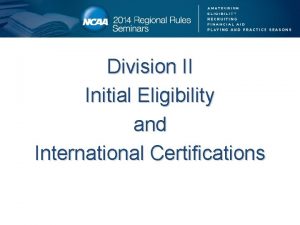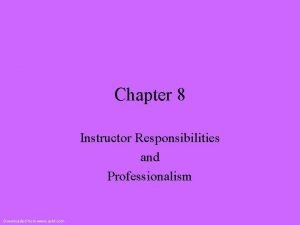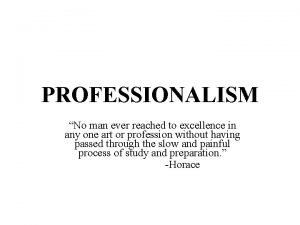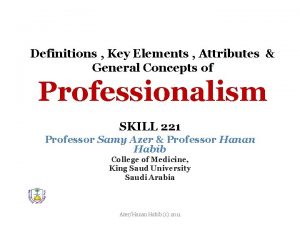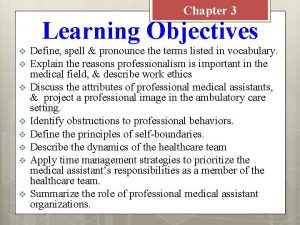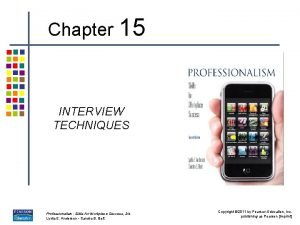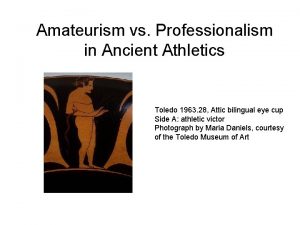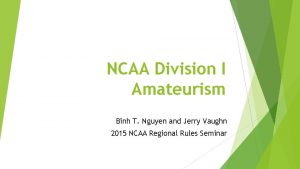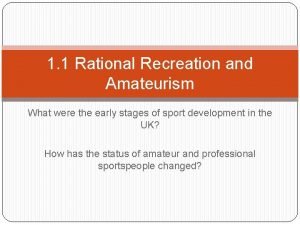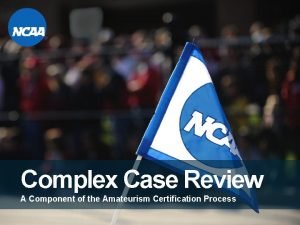Professionalism and Amateurism Year 12 Professionalism and Amateurism










- Slides: 10

Professionalism and Amateurism Year 12


Professionalism and Amateurism • The concept of Amateurism was thought to reflect the Ancient Olympian spirit, placing the ideals of fair play and team spirit high above any material objectives.

Professionalism and Amateurism • The first Games was held in 1850, and included events such as football, cricket, blindfold wheelbarrow race and chasing a pig through the town.

Professionalism and Amateurism • In England there was a distinct phase of amateurism: 1. Originally, amateurs were gentlemen (middle and upper class) who played sports in the spirit of fair competition. 2. There were advantages and disadvantages to the amateur code. It promoted respect in victory and graciousness in defeat. 3. Men accepted the rules and consequent respect for decisions. 4. However, it excluded the working class, which was morally unfair.

Professionalism and Amateurism • Employers could not accept ‘broken down payments’ (compensation for loss of wages), and by doing so, excluded workers from training, participating and travelling to play sport.

Amateurism • Evolved in the 19 th Century • The gentleman amateur was a social class distinction of the amateur code • Amateurism encompassed the belief in fair play and abiding to the rules of the game

Amateurism • Rowing was originally open to amateurs and professionals but the gentleman amateurs disliked being beaten by their social inferiors. • Rugby and football were developed in the 19 th century English public schools based on amateurism. • Broken time payments – working class players loss of earnings while playing sports such as football and rugby.

Professionalism • Engaging in a sporting activity for financial gain or as a means of livelihood means training which improves standards and specialising in an activity. • Athletics developed under amateur rules but in society it was very popular. As with many professional sports in the 19 th century, they encountered problems with bribery, corruption and fixing of events.

Professionalism • In professional sport in the 19 th century in England the role of the different social classes would be: • Lower class – performer • Middle class – agents, promoters, managers • Upper class – Patrons
 Ncaa amateurism certificate
Ncaa amateurism certificate Leaving primary school poem
Leaving primary school poem Ac 61-65
Ac 61-65 Discuss principles of professionalism
Discuss principles of professionalism Integrity and professionalism
Integrity and professionalism No professionalism
No professionalism Domain 4 showing professionalism examples
Domain 4 showing professionalism examples Professionalism workshop
Professionalism workshop 3 key elements of professionalism
3 key elements of professionalism Summarize three obstructions to professionalism
Summarize three obstructions to professionalism Professionalism skills for workplace success
Professionalism skills for workplace success
